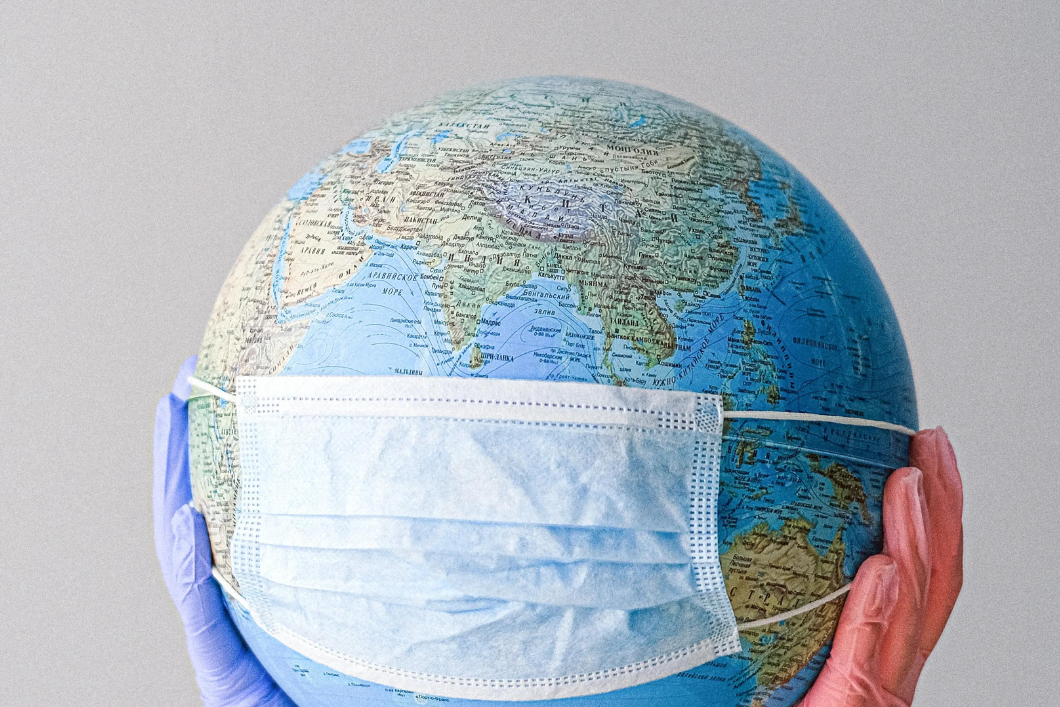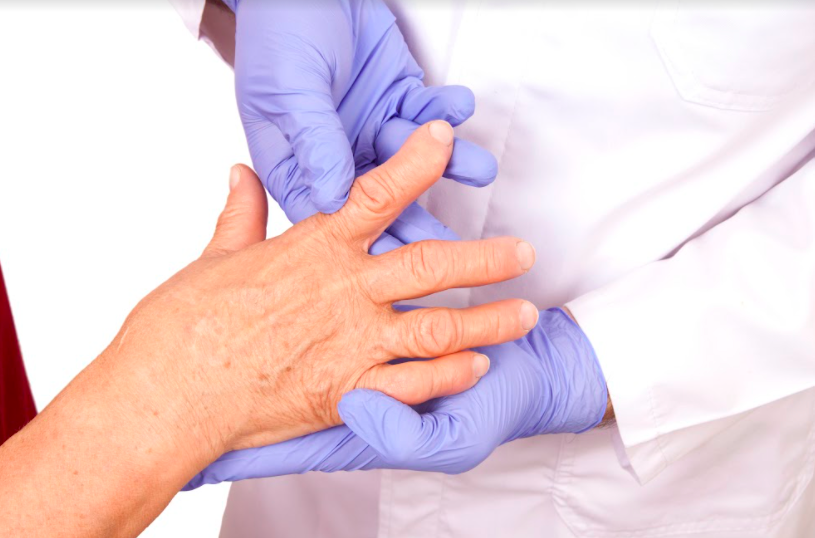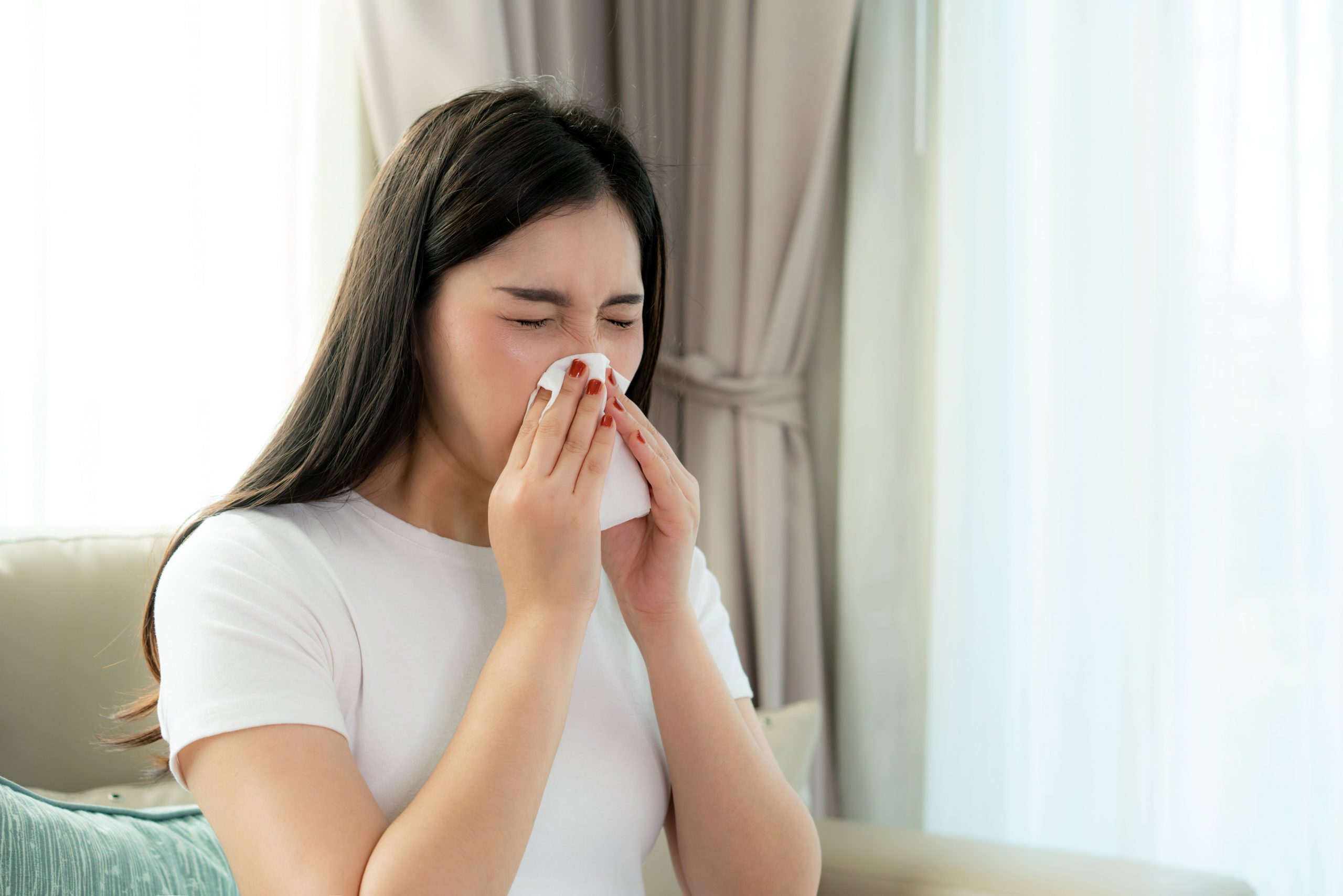COVID-19
10 alarming myths of Covid-19 vaccines we need to clear up
Do you have qualms about Covid-19 vaccine safety and efficacy? This article dispels the most common myths about Covid-19 vaccines in detail.
This article has been verified medically by Dr Leong Hoe Nam, infectious diseases specialist of Rophi Clinic, Mount Elizabeth Novena Specialist Centre (Singapore).
About the Doctor
Some people may still be considering whether or not to take the Covid-19 vaccine. As of publication on July 5, 2021, the Pfizer-BioNTech and Moderna vaccines are the only vaccines which have been approved by the Health Sciences Authority for use in the national immunisation programme in Singapore.
Follow us on WhatsApp for the latest updates: https://bit.ly/AsiaMDWhatsAppEN
Instead of relying on hearsay to tell apart truths from lies, it is important to refer to credible medical sources to clear up rumours. We compile 10 of the most popular myths about Covid-19 vaccines from credible websites such as the Centers for Disease Control and Prevention of the United States, Johns Hopkins Medicine and HealthXchange.sg. Infectious diseases specialist, Dr Leong Hoe Nam of Rophi Clinic, was kind enough to fact-check this article for us and contribute his valuable insights.
Myth #1: Traditional inactivated and attenuated vaccines are better than mRNA vaccines.
FACT: mRNA vaccines do not contain a live virus and therefore will not cause a vaccinated person to be infected with Covid-19. The currently HSA-approved mRNA vaccines, developed by Pfizer-BioNTech and Moderna, have the highest efficacy rates, at more than 90% in clinical trials, even among teenagers between 12 and 15 years old. In comparison, the other vaccines on the global market developed using the inactivated and attenuated approaches, have lower efficacy rates in clinical trials. Here’s an explainer by the United States Department of Health & Human Services on how the different vaccines work.
| Type of vaccine | How it works |
| Inactivated vaccine |
This method uses an inactivated version of the disease-carrying virus or bacterium, or one very similar to it. Flu and polio vaccines are made this way. PROS: This approach uses technology that’s been proven to work in people. Vaccines can be manufactured on a reasonable scale. CONS: The immunity produced by inactivated vaccines is usually weaker than live vaccines. You may need several booster shots over time in order to get ongoing immunity against diseases. It also requires special laboratory facilities to grow the virus or bacterium safely, and has a relatively long production time. |
| Live-attenuated vaccine |
A live-attenuated vaccine uses a virus that is still alive, but weakened. Such vaccines would trigger an immune response that is the close enough to fight off a natural infection, provided that the vaccinated person is healthy. The measles, mumps and rubella (MMR) vaccine and the chickenpox and shingles vaccine are examples of this type of vaccine. PROS: This approach uses similar technology to the inactivated vaccine and can be manufactured at scale. CONS: Vaccines like this may not be suitable for people with compromised immune systems. |
| mRNA vaccine |
mRNA vaccines give our cells the blueprint, or instructions, required to make the Covid-19 “spike protein” to trigger an immune response. PROS: Shorter manufacturing times. Does not contain a live virus, and therefore there is no risk of causing disease in the person getting vaccinated. mRNA does not interact with our DNA. CONS: mRNA vaccines require ultra-cold storage. They are also being introduced to mankind to fight disease for the first time and more observation is required before conclusions can be drawn about the longevity of their efficacy. |
Based on real world data, the mRNA has been successfully introduced in USA, UK, and Israel with a subsequent fall in case numbers. This was especially true in the pre-Delta strain era.
In countries that relied on the inactivated strain vaccine, there have been persistent reports of new infections and deaths. The available inactivated vaccines do not appear to share similar effectiveness compared to the mRNA vaccines.
Myth #2: The side effects of the Covid-19 vaccine are long-lasting and dangerous.
FACT: The Pfizer and Moderna Covid-19 vaccines can have side effects, but the vast majority are very short term —not serious or dangerous. HSA announced on May 6, 2021 that it had received 2,796 reports on suspected adverse effects to the Covid-19 vaccination over a three-month period. This made up 0.13 per cent of the more than 2.2 million administered doses from Dec 30, 2020 to Apr 18, 2021.
Most of these reports documented common reactions like fever, rashes, hives, headaches, shortness of breath, muscle aches and dizziness. These are largely the physical manifestation of the body mounting an immune response, the HSA said. They should subside within two days. If symptoms persist beyond two days, please see your general practitioner.
Of these 2,796 reports, there were 95 cases which were classified as serious adverse effects, and of these, 20 were reports of anaphylaxis, a rare and potentially life-threatening allergic reaction. Another severe adverse effect which is also closely monitored is Bell’s Palsy, also known as peripheral facial nerve palsy. Twenty-five cases of Bell’s Palsy were reported during this three-month period. This is a condition that causes temporary weakness or paralysis of the facial muscles.
The local incidence rate of anaphylaxis, 1.4 per 100,000 doses administered, is within the reported incidence rates of about 0.5 to 2 in other countries, said HSA. The majority of those who had suffered serious adverse effects were reported to have recovered or were recovering.
The vaccine developers report that some people also experience pain where they were injected.
In summary, most of the side effects are not severe and are in fact, temporary.
Previously, in Singapore, persons with a history of anaphylaxis to any drugs, vaccines, food, insect stings or unknown triggers were told not to receive the Pfizer-BioNTech and Moderna vaccines, which are mRNA-based. This restricted has been rescinded. individuals with allergies (anaphylaxis) may now proceed with vaccinations. Pregnant women, breastfeeding mothers, or individuals who are immunocompromised, such as cancer, may proceed with the vaccination safely. There have been many published reports on the safety of the vaccines in pregnancies.
Myth #3: Getting a Covid-19 vaccine means that I will test positive in Covid-19 swab tests.
FACT: No. Neither the Pfizer nor Moderna vaccine will cause you to test positive on the Polymerase Chain Reaction (PCR) test, which is used to see if you have a current infection. The vaccines for Covid-19 cannot and will not give you Covid-19.
The two authorised mRNA vaccines instruct your cells to reproduce a protein that is part of the SARS-CoV-2 coronavirus. This helps your body recognise and fight the virus, if it comes along. It does not cause infection of any sort. The vaccine itself does not contain the SARS-Co-2 virus and therefore cannot give you Covid-19.
If your body develops an immune response to vaccination, which is the goal, you may test positive on some antibody tests. Antibody tests indicate you had a previous infection and that you may have some level of protection against the virus. Experts are currently looking at how COVID-19 vaccination may affect antibody testing results.
Myth #4: If I’ve already been infected with Covid-19 previously, I don’t need to get vaccinated.
FACT: People who have previously been infected with Covid-19 may still benefit from getting vaccinated. As there are severe health risks associated with Covid-19, and it is entirely possible to get re-infected with Covid-19, people may be advised to get a Covid-19 vaccine even if they have been sick with Covid-19 before.
There is not enough information currently available to say if or for how long recovered Covid-19 patients have natural immunity. Early evidence suggests natural immunity from Covid-19 may not last very long, but more studies are needed to better understand this. Several subjects in the Pfizer trial who were previously infected got vaccinated without adverse effects. From published data, the mRNA vaccines appear to offer better protection for coronavirus than natural infection.
Health authorities recommend vaccination at or after 90 days from the natural infection. This recommendation came from observations that re-infections were uncommon in the first 90 days post infection.
Studies have also demonstrated that individuals who had one episode of infection would only require one dose of mRNA vaccine to mount a robust immune response – far superior to the two doses of mRNA vaccine given to an infection naïve individual.
Myth #5: Getting the Covid-19 vaccine means that I can stop wearing masks or observing safe distancing measures.
FACT: Getting vaccinated does not guarantee zero transmission of Covid-19. A number of Covid-19 infections in the Singapore community have occurred among those who had been fully vaccinated. Until more data is available to show that vaccination is effective in preventing transmission of Covid-19 infections, the community should continue to observe safe distancing and strict infection control measures, including the wearing of masks.
Research suggests that after vaccination, individuals may still fall sick with Covid-19 despite vaccination. This is known as a “vaccine breakthrough”. Should a person develop Covid-19 infection after vaccination, there is a reduction in risk of transmission to others. Watch the World Health Organization’s Dr Kate O’Brien explain in the video clip how frequent vaccine breakthroughs are and how they look like in a fully-vaccinated individual.
Video source: World Health Organization
This illustrates that vaccinated individuals may fall sick. Wearing masks can effectively reduce the risk of transmission to others.
Myth #6: I should wait and see before deciding whether to be vaccinated.
FACT: Due to global demand for Covid-19 vaccines, supplies are limited. Immunisation is an important line of defence against infectious diseases for the entire community. A higher proportion of immunised people will lower the risk of big outbreaks from occurring and this, in turn, will protect those who are not eligible for vaccination now. These include young children and those with severe immuno-compromised conditions.
If you are wondering if you should wait for other brands of Covid-19 vaccines to become available, the fact is that both vaccines authorised for use in Singapore have met stringent standards for safety, quality and efficacy.
The HSA authorised the Pfizer-BioNTech Covid-19 vaccine based on the following assessment:
- It has a high vaccine efficacy of more than 95% in preventing symptomatic Covid-19 disease in vaccinated persons aged 12 years and older
- Its safety profile is consistent with other established and registered vaccines. No significant safety concerns have been detected. Common side effects were expected as part of the body’s natural response to a vaccination, such as injection site pain, fever, fatigue and headache
- The benefits outweigh the known risks. But continued monitoring for longer-term efficacy of the vaccine, as well as monitoring for rare and serious adverse events will be needed
The HSA authorised the Moderna Covid-19 vaccine based on the following assessment:
- It has a high vaccine efficacy of 94% in preventing symptomatic Covid-19 disease in vaccinated persons aged 18 to 95 years
- Its safety profile is consistent with other established and registered vaccines. No significant safety concerns have been detected. Common side effects were expected as part of the body’s natural response to a vaccination, such as injection site pain, chills, vomiting, fever, fatigue, headache and joint pain
- The benefits outweigh the known risks. But continued monitoring for longer-term efficacy of the vaccine, as well as monitoring for rare and serious adverse events will be needed
If you are eligible for vaccination, please register your interest at vaccine.gov.sg.
The risk of widespread Covid-19 spreading in Singapore increases every day. The virus has adapted to be more transmissible. Vaccinating early will protect yourself and your loved ones and friends by minimising the risk of you spreading to others.
Get vaccinated early, and start protecting yourself and your loved ones.
Myth #7: The vaccine was rushed to be developed and hence unsafe.
FACT: Strong global partnerships (including governments, vaccine manufacturers and researchers) and significant investment of resources enabled an accelerated development timeline for Covid-19 vaccines. Studies found that the two initial vaccines are both about 95% effective — and reported no serious or life-threatening side effects.
Here are some reasons why the Covid-19 vaccines could be developed so quickly. Here are just a few:
- The Covid-19 vaccines from Pfizer-BioNTech and Moderna were created with a method that has been in development for years, so the companies could start the vaccine development process early in the pandemic.
- China isolated and shared genetic information about Covid-19 promptly, allowing scientists to start working on vaccines.
- The vaccine developers didn’t skip any testing steps, but conducted some of the steps on an overlapping schedule to gather data faster.
- Vaccine projects had plenty of resources, as governments invested in research and/or paid for vaccines in advance.
- The Covid-19 vaccines which were created using messenger RNA (mRNA) allows a faster approach than the traditional way that vaccines are made.
- Social media helped companies find and engage study volunteers, and many were willing to help with Covid-19 vaccine research.
- Companies began making vaccines early in the process, even before the Food and Drug Administration of United States issued authorisation — so some supplies were ready when authorisation was given.
No short cuts were taken to get the vaccine approved. The same rigours of animal studies and the three human phases were done and scrutinised. The overlapping nature of the tests placed tremendous strains on vaccine development. Four vaccines were abandoned after failed clinical trials, indicating the stringent requirements for approval. It was rather fortuitous that Pfizer and Moderna vaccines were approved. Curevac, another mRNA vaccine from Germany, failed in its efficacy trials that were reported in June 2021.
Myth #8: Receiving the Covid-19 vaccine will affect my chances of conceiving.
FACT: Confusion arose when a false report surfaced on social media, saying that the spike protein on the SARS-Cov-2 coronavirus was the same as another spike protein called syncitin-1, which is involved in the growth and attachment of the placenta during pregnancy. The false report said that getting the Covid-19 vaccine would cause a woman’s body to fight this different spike protein and affect her fertility.
The Covid-19 vaccine encourages the body to create copies of the spike protein found on the coronavirus’s surface. This “teaches” the body’s immune system to fight the virus that has that specific spike protein on it. Syncitin-1 is completely different and distinct from it.
Getting the Covid-19 vaccine will not affect the fertility of women who are seeking to become pregnant, including through in-vitro fertilisation methods. During the Pfizer vaccine tests, 23 women volunteers involved in the study became pregnant, and the only one who suffered a pregnancy loss had not received the actual vaccine, but a placebo.
No studies have demonstrated any loss of fertility after vaccination with Covid-19 mRNA vaccines. However, the long-term effect of the Covid-19 vaccine on fertility is unknown.
Myth #9: The Covid-19 vaccine will alter my DNA.
FACT: No. Covid-19 vaccines do not change or interact with your personal DNA in any way.
Both the Pfizer and Moderna vaccines are messenger RNA (mRNA) vaccines. They deliver instructions (genetic material) to our cells to start building protection against the virus that causes Covid-19. However, the material never enters the nucleus of the cell, which is where our DNA is kept. This means that the genetic material in the vaccines cannot affect or interact with our DNA in any way.
Myth #10: Someone who has received an mRNA Covid-19 vaccine will shed its vaccine components and the live coronavirus.
FACT: No. Individuals who have received an mRNA Covid-19 vaccine cannot shed or release any of the vaccine components. In addition, neither the Pfizer vaccine nor the Moderna vaccine contain a live virus, so it is not possible to shed it. The brittle nature of the mRNA vaccine means the vaccine is rapidly destroyed soon after it enters the harsh environment of the human body.

























